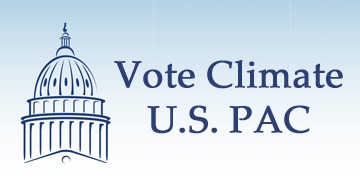Carbon Fee Legislation
“Only the complete elimination of CO2 [carbon dioxide] emissions would lead to a slow reduction in CO2 in the atmosphere over the next century.”
Carbon pollution from the human burning of fossil fuels is driving climate change. A carbon fee is a fee imposed on fossil fuels intended to dramatically reduce or eliminate the emission of carbon dioxide from those sources. A carbon fee would aid in the switch from fossil fuels to clean, renewable energy and slow climate change.
We support a carbon fee that:
- Sets an ambitious, concrete goal for emission reductions that is adequate to slow climate change and its impacts
- Sets an adequate price per ton of carbon or equivalent greenhouse gases, to reflect the real cost of emissions, including damages that arise from catastrophic climate change, to be paid by the polluter
- Sets a deadline for achieving those goals.*
Revenue from the fee should be invested in:
- Clean, renewable, non-nuclear energy like wind, solar and geothermal
- Worker training and transition programs to move workers to a clean energy economy
- Energy efficiency and conservation
- Other projects that further reduce greenhouse gas emissions and slow climate change
- And/or returned to tax payers in the form of an annual dividend, known as fee and dividend.**
A carbon fee should:
- Be applied broadly to include as many fossil fuel polluters as possible, thereby giving us the best chance of reducing or eliminating greenhouse gas emissions from those polluters
- Be paid far upstream at the point where the fuels are extracted from the Earth and put into the stream of commerce or imported to the U.S.
- Not fund bio fuels which contribute to deforestation, since forests are necessary to absorb excess carbon dioxide
- End the Haliburton exemption from the Safe Drinking Water Act for fracking, so that the carbon price does not cause harm from increased natural gas production
- Ensure that the polluter pays and the cost is not passed on to the taxpayer, especially low-income families or individuals.
* Vote Climate U.S. PAC is working to quantify emission reduction targets, price per ton of carbon and deadlines for carbon fee legislation. Check back for updates.
** Contrary to the scare tactics of the fossil fuel industry, a carbon fee with a dividend for consumers would create jobs and grow the American economy by increasing citizen purchasing power, improving people’s health through less pollution, and accelerating investment in clean, renewable sources of energy.
*** A fee on carbon is also known as a carbon tax or climate tax.
According to a study by Regional, Economic Models, Inc. such a fee would create a net of 2.1 million jobs over ten years, expand the economy by $80 -$90 billion, and save 13,000 lives from improving air quality. See REMI study linked below.
Resources
Find your federal elected officials: House of Representatives and Senate
Boxer/Sanders Climate Protection Act
[DISCUSSION DRAFT: FEE FOR EMISSIONS OF CARBON POLLUTION]
CARBON POLLUTION FEES: A NEW WORKABLE APPROACH
REMI, “The Economic, Climate, Fiscal, Power, and Demographic Impact of a National Fee-and-Dividend
Countries with a Carbon Fee or Carbon Tax
| Country | Year Implemented |
|---|---|
| Finland | 1990 |
| Netherlands | 1990 |
| Norway | 1991 |
| Sweden | 1991 |
| Denmark | 1992 |
| Costa Rica | 1997 |
| United Kingdom | 2001 |
| Switzerland | 2008 |
| Ireland | 2010 |
| India | 2010 |
| Japan | 2012 |
| Mexico | 2012 |
| United Kingdom | 2013 |
| Chile | 2014 |
| France | 2014 |
| South Africa | 2016 |
Other Governments with a Carbon Fee or Carbon Tax
| Country | Year Implemented |
|---|---|
| Quebec, Canada British | 2007 |
| Boulder, Colorado,USA | 2007 |
| Bay Area Air Quality ManagementDistrict, California, USA | 2008 |
| Columbia, Canada | 2012 |
| Ottowa, Canada | 2016 |
Map Source: http://www.carbontax.org/where-carbon-is-taxed/

